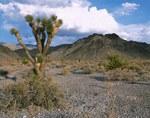-
BREAKING! Senate Advances RESTORE the Gulf Legislation
Audubon Advisory
March 8, 2012
Vol 2012 Issue 3 -
Worldwatch Institute’s State of the World 2011 Conference
Worldwatch Institute’s State of the World 2011
Shows Agriculture Innovation Is Key to
Reducing Poverty, Stabilizing Climate
When: Wednesday, January 12, 2011 at 10 AM EST (SHARP)
Briefing 10-10:45 AM; Interviews and Reception 10:45-11:45 AM
Who: Christopher Flavin, President, Worldwatch InstituteBrian Halweil and Danielle Nierenberg, Senior Researchers, Worldwatch Institute, and co-Project
Directors, Nourishing the Planet (www.NourishingthePlanet.org)
Anna Lappé, best-selling author and founder, Small Planet Institute
Stephanie Hanson, Director of Policy and Outreach, One Acre Fund
Where: WNYC Radio’s The Greene Space
44 Charlton Street (on the corner of Charlton & Varick)
New York, NY 10014, USARSVP: Amanda Stone, (+1) 202-452-1999 x514, [email protected], or click HERE
PLEASE NOTE: For press who are unable to attend in-person, we have a toll-free, global teleconference number. For call-in info, please contact Amanda Stone at [email protected].
At a time when 925 million people worldwide are hungry and investments in agricultural development are only gradually beginning to recover in the wake of global recession, governments, policymakers, nongovernmental organizations, and the donor community need to commit to longstanding support for the world’s farmers. In Africa, farmers make up 80 percent of the population and hold the key to unlocking the continent’s untapped agricultural potential to feed the future.
Worldwatch Institute’s State of the World 2011: Innovations that Nourish the Planet draws from the world’s leading agricultural experts and from the hundreds of innovations that are already working on the ground to outline 15 proven, environmentally sustainable prescriptions for alleviating hunger and poverty. On January 12, three of the book’s 60 international contributors will present key findings from the report, including a roadmap for agricultural investment in successful projects that can prevent food waste, build resilience to climate change, and strengthen farming in cities.
State of the World 2011 is being released at a time when many global hunger and food security initiatives-such as the Obama administration’s Feed the Future program, the Global Agriculture and Food Security Program (GAFSP), the United Nations World Food Programme (WFP), and the Comprehensive Africa Agriculture Development Programme (CAADP)-need critical guidance to scale up agricultural investments.
Since the mid 1980s when agricultural funding was at its height, the share of global development aid has fallen from over 16 percent to just 4 percent today. Given the current economic conditions, investments are not likely to increase in the coming year.. Much of the recently pledged funding has yet to be raised or to reach the poor farmers of Africa. With a large share of the human family still chronically hungry nearly a half-century after the Green Revolution, it is clear that existing funding is not being targeted effectively. Guidance is needed to direct investments toward projects that are already working and that could be replicated or scaled up in regions around the world.
The findings of Worldwatch’s Nourishing the Planet project were gathered over the course of a year spent researching on the ground in 25 sub-Saharan African countries. These findings will be shared with a wide range of agricultural stakeholders, including government ministries, agricultural policymakers, farmer and community networks, and the increasingly influential nongovernmental environmental and development communities.
For a review copy of State of the World 2011, for more information, or to schedule author interviews, contact: Amanda Stone at (+1) 202-452-1999 x514, or [email protected].About the Worldwatch Institute
Worldwatch is an independent research organization based in Washington, D.C., that works on energy, resource, and environmental issues. The Institute’s State of the World report is published annually in more than 20 languages. For more information, visit www.worldwatch.org. -
Victory for Joshua Tree National Park
Credit: FWS/Ryan Hagerty Thousands of Audubon members living in Western states have won a victory over special interests trying to build a dump near Joshua Tree National Park. Last month, Audubon members responded in great numbers to an action alert that Joshua Tree National Park was threatened by what would have been the nation’s largest landfill just 2500 yards from the Park’s boundaries. Last November, a federal court rejected a land exchange that would have allowed the landfill plan to proceed. Just a few days ago, thanks to a huge public outcry from thousands of Audubon members and other concerned citizens, the Department of Interior backed away from plans to appeal the court decision, acknowledging the importance of a healthy environment to the communities, businesses, tourists—and birds!—that value a national park over a garbage dump.


